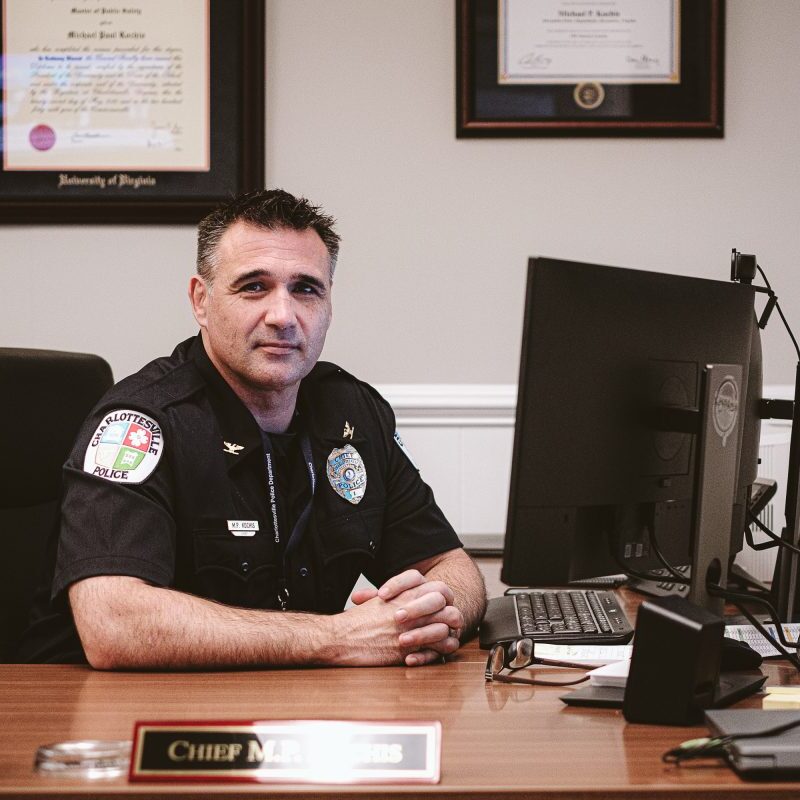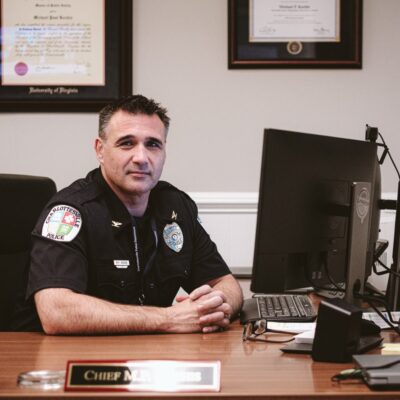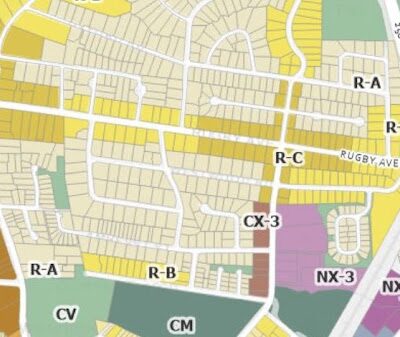After forensic detective Mark Fields finishes hanging a piece of cloth from the blackboard, he peels off his latex gloves and turns to face the classroom of PVCC students. “Does anybody care if I wear a tie?” he asks them. Nobody cares. “Good,” he says, and snaps the clip-on tie from his collar.
Fields is here to give a lecture on forensic science, a field recently made popular by TV shows like “CSI.” The audience is made up of students from PVCC’s “Principles of Criminal Investigation” class, taught by Brian Flick. For the next three hours, Fields runs through a presentation on how to approach and secure a crime scene, how to document a scene and, perhaps most importantly, the words of Edmond Locard.
 Shows like “CSI” have made juries smarter, says Detective Mark Fields, but “criminals watch that stuff too, and they learn.” |
Locard is widely known as the founder of forensic science. The idea that has come to be known as Locard’s Principle is the fundamental idea on which forensic science rests. It states that no matter what we do, we leave traces of physical evidence in our wake. “Physical evidence cannot be wrong, it cannot perjure itself, it cannot be wholly absent,” wrote Locard. “Only human failure to find it, study and understand it, can diminish its value.”
Fields joined the Charlottesville Police Department’s forensics unit in 1996, and he is the lone detective in the unit. With his straight black hair and round glasses, Fields more than resembles the incendiary comic Bill Hicks, though his first couple jokes bomb in front of the less-than-energetic class. But that is before Fields begins the presentation. When he does, hands constantly shoot up in the air with questions. He is a walking encyclopedia of forensic knowledge, and he meticulously demonstrates just how he would approach and work a crime scene in a place familiar to all of the students: this particular classroom.
Fields acknowledged that a lot of interest in his job has lately arisen from the popularity of the “CSI” TV franchise. And that, he says, is both good and bad.
“It has made our jobs harder because criminals watch that stuff too, and they learn,” he says after the presentation. “They pick out little tidbits.”
But what he dubs the “‘CSI’ effect” also has its upside.
“Juries are getting smarter, because they’re asking better questions,” says Fields. “When it comes time for jury deliberation, and they come out and ask for diagrams or sketches…if they ask for clarification, that to me says they’re getting smarter, they’re listening, they’re paying more attention.”
In his 12 years in the unit, there perhaps has not been a higher-profile case than that of the serial rapist, a 10-year case that ended with the August arrest of Nathan Antonio Washington and his subsequent guilty plea. Fields processed some of the crime scenes. Watching seven assaults pile up without an arrest took its toll.
“It got frustrating,” he says. “A lot of things run into your mind when weeks drag into months and months drag into years. I can’t tell you how many clues or leads that were given to us that we constantly worked on.
“The emotional effect on me—it would be like going to work every day, and ‘Are we going to get a new scene, are we going to get that phone call from the lab?’ I can tell you from having talked to some of the victims, there is a tremendous wave of relief all the way around.”
C-VILLE welcomes news tips from readers. Send them to news@c-ville.com.





